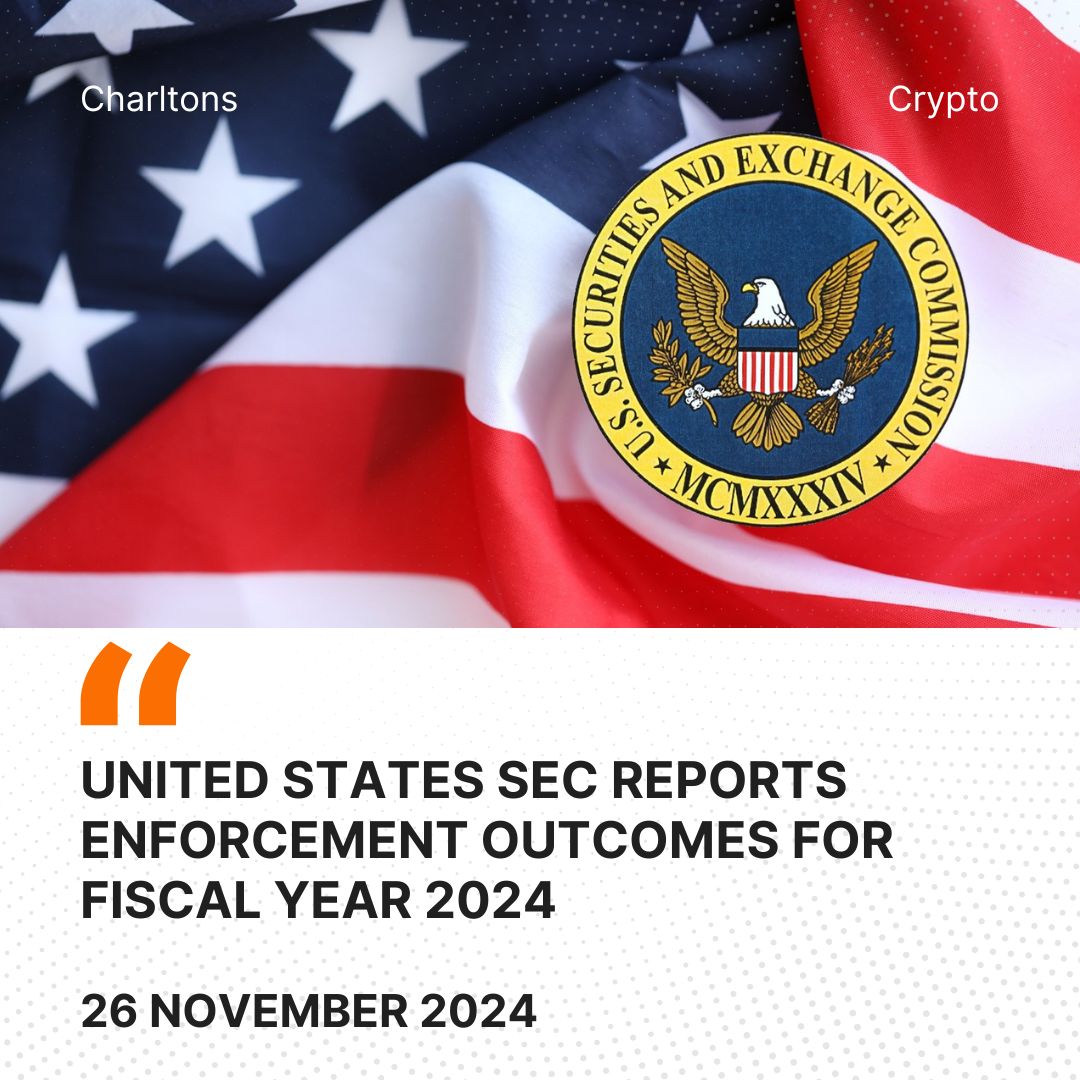
On 22 November 2024, the United States Securities and Exchange Commission announced the enforcement statistics for fiscal year 2024, providing a report on financial remedies and ongoing efforts to promote compliance and investor protection. Despite a decline in the total number of enforcement actions, the United States SEC boasts its ability to secure outcomes, including its highest-ever monetary remedies and landmark judgments in high-profile cases.
The United States SEC’s primary mandate is to enforce federal securities laws to ensure market integrity, protect investors, and hold violators accountable. Each year, the agency reports on its enforcement activities, reflecting its response to emerging market risks, compliance trends, and the evolving landscape of securities regulation. Fiscal year 2024 saw a shift toward encouraging proactive compliance among market participants, addressing technological challenges, and targeting major fraud schemes.
In fiscal year 2024, the United States SEC obtained financial remedies totaling US $8.2 billion, the highest in its history. This included US $6.1 billion in disgorgement and prejudgment interest and US $2.1 billion in civil penalties. The bulk of this record sum, 56% came from a jury verdict in the United States SEC’s case against Terraform Labs and its founder Do Kwon, who were charged with orchestrating one of the largest securities frauds in U.S. history. The total number of enforcement actions, however, declined to 583, a 26% decrease from the prior fiscal year. Among these, 431 were stand-alone actions (14% decrease), 93 were follow-on administrative proceedings (43% decrease), and 59 were actions against delinquent filers (51% decrease). Despite this decline, SEC Chair Gary Gensler showed the agency’s impact in deterring misconduct and fostering market trust.
A portion of the United States SEC’s efforts focused on combating fraud and holding perpetrators accountable. The Commission charged Terraform Labs and Do Kwon with securities fraud, securing over US $4.5 billion in remedies following a jury verdict. Other notable cases included charges against HyperFund and NovaTech for fraudulent schemes that raised billions of dollars globally, and actions against Morgan Stanley for its involvement in a multi-year fraud involving block trade disclosures, resulting in penalties of US $249 million.
Fraud cases extended beyond corporate entities to individuals who engaged in Ponzi schemes, crypto-asset scams, and insider trading. For example, the United States SEC charged Cynthia and Eddy Petion, founders of NovaTech, for operating a fraudulent scheme that raised over US $650 million from investors. The United States SEC places a strong emphasis on fostering proactive compliance among market participants, including broker-dealers, investment advisers, and public companies. Many firms responded by self-reporting violations, remediating issues, and cooperating with the US SEC’s investigations, where reduced or no penalties were imposed, particularly for large entities that demonstrated a robust commitment to corrective measures.
Notable initiatives included the US SEC’s crackdown on recordkeeping violations. The agency pursued over 70 firms, imposing more than US $600 million in penalties for failing to comply with federal recordkeeping laws. In another significant effort, the United States SEC enforced compliance with the Marketing Rule, addressing cases where investment advisers misrepresented hypothetical performance or used unsubstantiated claims in advertisements.
In fiscal year 2024, the United States SEC faced heightened risks from emerging technologies, cybersecurity threats, and social media scams. It took action against companies misusing artificial intelligence to mislead investors, including QZ Asset Management, which falsely claimed extraordinary returns from its AI technology. Similarly, the US SEC addressed cybersecurity lapses, such as the delayed reporting of a cyber intrusion by the Intercontinental Exchange, and settled cases involving social media-based relationship scams that defrauded thousands.
The crypto-asset market continued to be a focal point. The United States SEC charged Barnbridge DAO for failing to register its structured crypto-asset offerings as securities. It also pursued actions against companies like Silvergate Capital for misleading disclosures about compliance with anti-money laundering regulations.
The United States SEC’s whistleblower program reached a milestone in fiscal year 2024, receiving a record 45,130 tips, complaints, and referrals. More than 24,000 were whistleblower tips, and the agency issued awards totaling US $255 million. Additionally, US $345 million was distributed to harmed investors, bringing the total restitution since fiscal year 2021 to over US $2.7 billion.
Holding individuals accountable remained a priority of the United States SEC’s enforcement strategy, high-profile cases included the barring of Do Kwon from serving as an officer or director of public companies and penalties against executives of Silvergate Capital for misleading investors. The Commission also addressed failures by gatekeepers, such as audit firms and compliance officers, to uphold their fiduciary responsibilities.
(Source: https://www.sec.gov/newsroom/press-releases/2024-186, https://www.sec.gov/files/fy24-enforcement-statistics.pdf)





